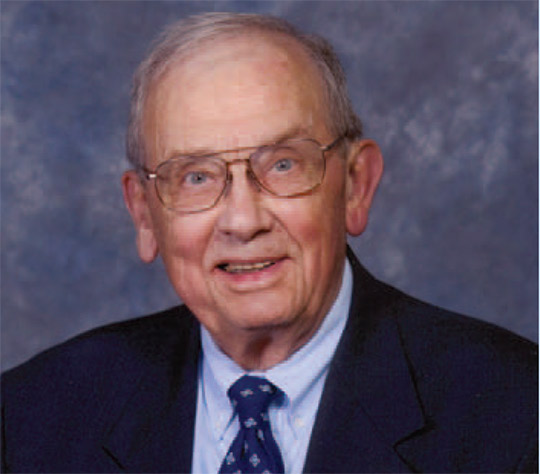Progressing Beyond His Comfort Zone
Alumni Focus: With World II, life at TC and beyond changed dramatically for Richard Alexander (M.A. '41). So, ultimately, did he.
By Joe Levine
To seven-year-old Richard Alexander Jr. in 1924, Teachers College, where his father – Tom Alexander, an expert on German progressive education, had recently been hired as a professor –felt like home.
In Tennessee, Richard had gardened and swam at the Peabody Demonstration School, founded by his dad at the George Peabody College for Teachers. He’d visited with “Uncle Will” – William F. Russell, son of TC Dean James Earl Russell, and Tom Alexander’s close friend. At TC, with its International Institute, progressive ethos and community of faculty families, “I was in my comfort zone,” says Alexander, 95.
Alexander and his sister Mary grew up in Seth Low Hall and attended TC’s Lincoln school. Tom Alexander worked with William Heard Kilpatrick, George Counts and Paul Monroe. Between 1925 and 1936, Richard often lived in Berlin, first with his mother and sister while he attended the Karl Marx Schule, founded by the Deweyan educator Fritz Karsen, and later through TC.
In 1932, Tom Alexander (backed by William Russell, now TC’s President) became founding dean of an institution within TC that sought to remake society during the Great Depression.
New College, as it was called, “was the most significant block of formal education I ever had,” says Alexander, who enrolled the day he graduated from Lincoln. “The philosophy was about learning to live with others from different cultures and seeing how we get our food in the world. Throughout my career as a teacher” – first at Springdale, a boarding school created by New College, and then as an education professor at Adelphi and Ball State Universities – “I thought about how we did things at New College.”
New College’s “orientation” consisted of six weeks on a 1,000-acre working farm in western North Carolina. Back at TC, Alexander wrote papers on how access to transportation affected literacy in North Carolina’s Haywood and Jackson counties. He taught at the Speyer School, TC’s pioneering community school. He met his future wife, a Tennessee farm girl named Margaret Pitts. And, of course, he spent his study-abroad semesters in Berlin.
But trouble was brewing. In Germany, the Nazis came to power. They closed the Karl Marx Schule, and Fritz Karsen fled the country. Alexander’s best friend, a Jewish classmate named Max Koesten, disappeared.
At New College, enrollment was declining. Tom Alexander came under fire, both from conservatives who accused the school of espousing communism, and from the left for his German connections. Richard Alexander found himself half-seriously accused by friends of having Nazi sympathies.
“I was always a Germanophile – Germany was a second home,” he says. “But I saw what happened to Max and to Dr. Karsen. I saw the military development and the riots. It tore me apart.”
In 1939, New College closed, though its students were allowed to continue at TC. In October 1942, Richard Alexander was drafted and fought in Europe with the 83rd Infantry Division Artillery.
“My comfort zone changed,” he says. “I had been brought up during the ‘no more war’ era, but the Germany I knew, I saw going down the tube – and I helped push them down the tube, all the way from Omaha Beach to the Elbe River, 40 miles from Berlin.”
After New College closed, alumni and former faculty founded, led and taught at institutions around the world. Tom Alexander worked in Germany with Lucius Clay, the U.S. military governor, on the postwar reorganization of German schools. At Ball State, Richard Alexander created a foreign exchange program with England’s Keele University that continues to this day.
“The seed was spread when New College closed,” he says. “Long-term, that probably was more valuable than if everyone had stayed at TC.”
In 2006, Alexander received a call from a graduate student at the University of Illinois who had read an account by Alexander of his experiences before and during the war. He had located a man named Max Koesten living in Brazil. A year later, Alexander spoke by phone with his long-lost friend.
“It’s a small world,” Alexander says. “It boggles your mind.”
The New College Scholarship is an endowed fund established by Richard Alexander to support TC students in the Department of Curriculum and Teaching.
Published Thursday, Jun. 27, 2013
